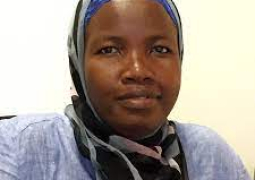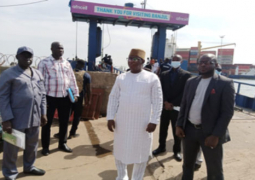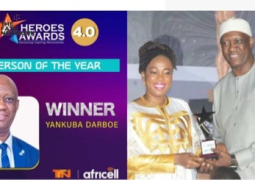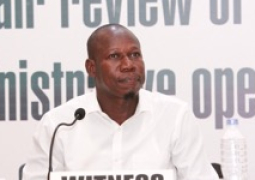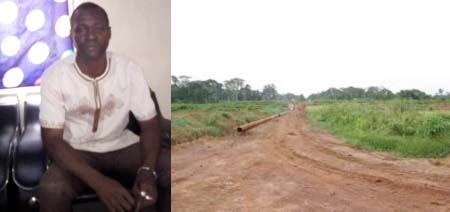
Lamin Bajo said the court came to a final ruling without consulting the community of Busuranding, saying based on that, his office has notified the police and closely working to ensure that no one touches the places until all the court cases are sorted out.
He said it was the community of Sanyang that once sued the community of Deya to court, claiming to own the piece of land and produced a document from the physical planning that contains a map that encloses the community forest and even part of the community of Busuranding.
“We consulted the physical planning department but they could not give us the name of the person who drew the map and another document that they received from the high court was requesting the community of Busuranding to vacate the place,” he said.
He said a portion of the Busuranding community forest is now reportedly sold to one Bakusa Jobarteh by the Jabang Kunda family of Sanyang.
Mr. Bajo told The Point on Sunday that the Jabang Kunda family of Sanyang claimed that the land belonged to their great grandfather and when they claimed ownership some five years ago, their action was dismissed because it is a community forest that had been gazetted since 1996.
West Coast Region has the highest rate of land disputes in the Gambia. Land has become a precious and lucrative investment in The Gambia; an enterprise that began in the early 2000’s when estate development started to boom. It came along with negative vices, including loss of lives.
In what is now dubbed ‘land rush,’ in the country, the systematic takeovers are equally posing serious threats to major new commitments for women and children rights and other initiatives against hunger and disease.
“The first attack on the land was by the community of Sinchang Wurry who cleared about three hectares of the land. That matter is currently before the Brikama Magistrates’ Court. The reason for taking the matter to court is because the community of Sinchang Wurry has no right to claim that forest and there was no village called Sinchang Wurry when the community forest was being formed,” Mr Bayo stated.
In September last year, the Ministry of Lands, Regional Governments and Religious Affairs and the Food and Agriculture Organisation (FAO) of the United Nations convened a day’s synergy at Kairaba Beach Hotel, where stakeholders discussed a project that targets to address conflicts over land and natural resources in the country.
It also targets to strengthen government efforts in formulating legal frameworks for Land and Natural Resources (LNR), related conflict resolution, governance and to enhance mechanisms for conflict prevention in communities where LNR conflict-related violence has already occurred and support actions for peace building.
Mr. Bajo said it was while the dispute over the community forest was still on Jabang Kunda allegedly sold another 4 hectares of naturally grown trees to Bakusa Jobarteh. He said Mr Jobarteh was later arrested by the police.
“During our investigation, we invited Jabang Kunda family to come and explain their part because according to the memorandum in the Forest Act, no one has the power to revoke community forest management agreement except the minister and he can only do that when the community is destroying the forest and not when an individual claims it.”
According to Mr. Bajo, some documents were produced during their investigation but those documents are meant for Deya community –a small village close to Sanyang.
In June 2018, three people died and several others were hospitalised when the young people of Faraba Banta in Kombo East clashed with personnel of the Police Intervention Unit (PIU), in what the youth claimed was a land grab by Julakay Engineering and Construction Company, claiming it was issued sand mining licence by government.
Also in 2017, young people of Bafuloto launched an attack on law enforcement officers and those of the Department of Physical Planning as they attempted to pull down illegal structures in that village and its environs.


